Discover AuDHD Flourishing
AuDHD Flourishing

AuDHD Flourishing
Author: Mattia Maurée
Subscribed: 291Played: 8,237Subscribe
Share
© Mattia Maurée
Description
The monotropic neurotype of Autism + ADHD holds strengths and challenges. Typical advice often doesn't work for us!
Your AuDHD host, Mattia Maurée (they/them), shares research, lived experience, and practical advice from coaching over 400 neurodivergent folks. They focus on feeling better first, before tackling the big life design questions.
You're doing great, you belong here, and it's possible to feel a lot better.
Hosted on Acast. See acast.com/privacy for more information.
151 Episodes
Reverse
AuDHD leadership touches on last week's interview with Dr Megan Anna Neff. And it goes beyond the visible leadership of creating content, or being in the public eye.AuDHD leadership can includebeing your authentic selfvisibly meeting your sensory needssharing what helps you (whether or not it's advice)Mentioned in episode:- Do Less program for 2026 (starts Jan 15, reach out by Jan 7)Email mattia@mattiamauree.com with application answers, and/or any questions- Blog post with business episodesAuDHD Flourishing resources:Transcript Doc (often a few weeks behind, but we do catch up!)Mattia's NewsletterLike Your Brain community space (Patreon/Discord) Hosted on Acast. See acast.com/privacy for more information.
Dr Megan Anna Neff is a neurodivergent therapist and thought leader, who became popular in 2022 with their "Misdiagnosis Monday" series. Their thoughtful content has helped many thousands of AuDHDers and other neurodivergent folks feel seen and understood.Today we talk abouthaving a small business as a neurodivergent person (including PDA at the end)the questions and concerns we have about creating helpful content, and not causing harmhow weird it is to be perceivedConnect with Megan Anna & Neurodivergent Insights:Free Help Me Stay Plan (for SI)Website: neurodivergentinsights.comDivergent Conversations Podcast: www.divergentpod.comInstagram: www.instagram.com/neurodivergent_insights/YouTube: https://www.youtube.com/@NeurodivergentInsightsTVDo Less program for 2026 (starts Jan 15)AuDHD Flourishing resources:Transcript Doc (often a few weeks behind, but we do catch up!)Mattia's NewsletterLike Your Brain community space (Patreon/Discord) Hosted on Acast. See acast.com/privacy for more information.
Doing less of what's harming you opens up time and energy. You can enjoy that as rest, and if desired, eventually fill it in with what you do want.AuDHDers often need to move at a slower pace, in many ways. Sometimes we then have creative bursts that move fast... but the space comes FIRST!Mentioned in episode:Do Less program for 2026 (starts Jan 15)book, Anti-Diet by Christy Harrison (affiliate link)AuDHD Flourishing resources:Transcript Doc (often a few weeks behind, but we do catch up!)Mattia's NewsletterLike Your Brain community space (Patreon/Discord) Hosted on Acast. See acast.com/privacy for more information.
Pasha joins again to talk about what they've learned in the past two years since last being on the show! We talk about belonging, triggers in relationships, and much more.She also shares the ableism behind the scenes of an autism training from a large (unnamed) org.Mentioned in episode:Pasha's website & LinkedInInstagram @neuroqueercoachTikTok @neuroqueercoachPasha's YouTubeAuDHD Flourishing resources:Transcript Doc (often a few weeks behind, but we do catch up!)Mattia's NewsletterLike Your Brain community space (Patreon/Discord) Hosted on Acast. See acast.com/privacy for more information.
Decluttering, organizing, and cleaning my home in a more routine way is having some interesting effects on my perfectionist tendencies! (Plus, perfectionism comes up in the decision-making process; more on that in my interview on A Slob Comes Clean, which I'll link here when it's out.)Specifically, a cleaner space = less decision fatigue = lower cognitive load = more executive function resources for ME!If you want support with that:Decluttering Days free 5-day event (Nov 17-21 2025)Mentioned in episode (Dana K White resources):Free 5-Step Decluttering Process (note it's /five, not /5 at aslobcomesclean.com)A Slob Comes Clean podcast & YouTube channelOrganizing for the Rest of UsDecluttering at the Speed of LifeHow to Manage Your Home Without Losing Your Mind (book links are affiliate links)AuDHD Flourishing resources:Transcript Doc (often a few weeks behind, but we do catch up!)Mattia's NewsletterLike Your Brain community space (Patreon/Discord) Hosted on Acast. See acast.com/privacy for more information.
Dana K White, like me, couldn't find advice that worked for her. So she made it up! And it turns out, it was helpful for many other people too.After writing an anonymous blog about cleaning her overwhelmingly cluttered home, Dana "came out" and started helping others too. Also, many of those people let her know she seems to have ADHD ;)Her explanations have already helped me a lot, and given me hope about a clean home for the first time in ages.We talk about many of the overarching themes/tips in her books (which are linked below)Decluttering Days free 5-day event (Nov 17-21 2025)Connect/Learn more from Dana:Free 5-Step Decluttering Process (note it's /five, not /5 at aslobcomesclean.com)A Slob Comes Clean podcast & YouTube channelOrganizing for the Rest of UsDecluttering at the Speed of LifeHow to Manage Your Home Without Losing Your Mind (book links are affiliate links)AuDHD Flourishing resources:Transcript Doc (often a few weeks behind, but we do catch up!)Mattia's NewsletterLike Your Brain community space (Patreon/Discord) Hosted on Acast. See acast.com/privacy for more information.
Transitions are one of THE things that support the way that productivity shows up for AuDHDers! Transitions don't have to be all about work: play and rest can be transitions too. And sometimes we need transition time into and out of work, play, AND rest!Today I talk in more detail about how long transitions can take for me (routinely 30-60 minutes). If that's true for you, a 20-minute chunk of work (or getting interrupted) isn't going to feel that good compared to the transition time required. (That said, anything goes in burnout recovery!)Anecdotally: AuDHD folks may need more transition time than ADHD or Autistic folks (even though it's often talked about as an autism trait or need). If that's true, it's possible that it's monotropism that leads to higher transition time needs.Note: I misspoke when I said "dares and challenges." They're actually dares and commitments :)Decluttering Days free 5-day event (Nov 17-21 2025)AuDHD Flourishing resources:Transcript Doc (often a few weeks behind, but we do catch up!)Mattia's NewsletterLike Your Brain community space (Patreon/Discord) Hosted on Acast. See acast.com/privacy for more information.
PDA is the Persistent Drive for Autonomy (community term), or pathological demand avoidance (clinical & pathologizing term). What happens when PDA, ADHD, and autism all overlap? Well... stress and relationship challenges!Thankfully, everything that helped me feel more safe has also made my PDA more manageable. There are many approaches to build that safety.This episode is a follow-up to the interview on PDA last weekMentioned in episode: Book Low-Demand Parenting by Amanda Diekman (affiliate link)Last week's interview on PDA, and the podcast PDA: Resistance and ResilienceMattia's bday (or whenever) wish listAuDHD Flourishing resources:Transcript Doc (often a few weeks behind, but we do catch up!)Mattia's NewsletterLike Your Brain community space (Patreon/Discord) Hosted on Acast. See acast.com/privacy for more information.
It's been a running joke (that wasn't initially a joke) that I'm totally going to do a PDA episode very soon... since the very first episode of AuDHD Flourishing.Now we have one, thanks to Chris Wells and Marni Kammersell for interviewing me on PDA: Resistance and Resilience, and letting me cross-post the episode here!Mentioned in episode:Full show notesAuDHD Flourishing Episode 87: Giftedness & the Sparkly Mind with Sheldon GayAuDHD Flourishing Episode 88: Gifted Development & Positive Disintegration with Chris WellsAuDHD Flourishing Episode 108: Using Intuition PracticallyRobert Chapman’s book Empire of NormalityConnect with Chris, Marni, PDA pod:Wandering Brightly with Marni KammersellPositive Disintegration and cosmic cheer squad with Chris WellsPDA: Resistance and Resilience on SubstackFollow us on InstagramAuDHD Flourishing resources:Transcript DocMattia's NewsletterLike Your Brain community space (Patreon/Discord) Hosted on Acast. See acast.com/privacy for more information.
About two years ago, I started ADHD stimulant medication as a regular (most days) thing. I've mentioned it here and there on the podcast. This is my most concentrated "review" of the main things I've noticed over the past two years. To be clear, when I mention a factor that might make stimulant meds more of a burnout risk, I'm not saying those folks shouldn't try it! Just to be very careful not to push through the body's capacity. Mentioned in episode: Mattia interviewed on Chris Wells' & Marni Kammersell's new podcast, PDA: Resistance and Resilience. Ep 7: Creative Resistance (I'll be posting this episode in the feed next week)AuDHD Flourishing resources:Transcript DocMattia's NewsletterLike Your Brain community space (Patreon/Discord) Hosted on Acast. See acast.com/privacy for more information.
One reason most advice doesn't work for us is that it's backwards. It's telling us to do/have the end result, rather than showing us how to get there.In the case of safety or shame, it's pretty clear that we can't just leap to the end of the process (if there even is one with a traumatized body).Mentioned in episode: Toxic Shame: What it is and How to Heal From it (YouTube, Heidi Priebe. Her take is overall better/more accessible than the book she's referencing, which is shockingly triggering all over the place)AuDHD Flourishing resources:Transcript DocMattia's NewsletterLike Your Brain community space (Patreon/Discord) Hosted on Acast. See acast.com/privacy for more information.
TQ (they/them) is a queer, trans, physically disabled, AuDHD Chinese-Singaporean artist, author/host of the upcoming book/podcast Queer! AuDHD! BIPOC!, and community facilitator for other queer neurodivergent BIPOC.In true ND fashion, we range over many topics, including the importance of community and hearing your own stories as a person with multiple intersecting identities. You can pre-order a copy of their upcoming book for behind-the-scenes/early access to the interviews and writing! TQ's links & mentioned in episode:Support the Queer! AuDHD! BIPOC! book and podcastAll the incredible neurodivergent, Autistic, and AuDHD creators of color TQ learns fromLovette Jallow on the history/use of the term "intersectionality" The Autastic CommunityAuDHD Flourishing resources:Transcript DocMattia's NewsletterLike Your Brain community space (Patreon/Discord) Hosted on Acast. See acast.com/privacy for more information.
Also on YouTube for some visualsMy urge for minimalism is partly to provide myself with the visual cues I desperately need, without overwhelming myself with visual clutter. And, there has been a specifically classist push for minimalism that sometimes causes me to get rid of too much.Here's an excellent thread about minimalism, class, and why you're probably not a hoarderI especially loved the idea that you may just need better organization, because I really love lining things up. Now I'm focusing on organizing based on my interests, rather than what I think is the most practical or obvious!Mentioned in episode: Mastodon thread about minimalismThe exact iPad cover I showed that looks like a Composition notebook (still going strong almost four years in), affiliate linkAuDHD Flourishing resources:Transcript DocMattia's NewsletterLike Your Brain community space (Patreon/Discord) Hosted on Acast. See acast.com/privacy for more information.
Thanks to Hyperfocus with Rae Jacobson for letting me cross-post this important discussion about one of the first longitudinal studies of ADHD in women and girls!Full show notes, timestamps, and Transcript available on Hyperfocus' site(Ep 5, The “devastating” findings of a decades-long ADHD study, Dec 5, 2024 has the full version; it was reposted Aug 28 2025 with more brief notes)Show notes:Dr. Stephen Hinshaw is one of the leading voices when it comes to ADHD in women and girls. That’s in large part due to his work on The Berkeley Girls Study. (Its full name is The Berkeley Girls with ADHD Longitudinal Study, but most people know it by that shorthand or acronym: The BGALs Study.)Under Steve’s leadership, researchers began studying 140 girls with ADHD and a control group of nearly 90 girls without it. They’ve been following these girls into their adulthood, producing a reams of information that has helped shape current understanding of ADHD in women and girls. That said, Rae Jacobson had plenty of questions for Steve:Why did you want to study ADHD in girls at a time when it was typically seen as a boys’ disorder?Why is it that one type of ADHD seems to lead to such negative outcomes?What do we do about the stigma that still surrounds the disorder?note: This episode includes discussion of suicide and self-harm. Please take care when listening and skip this one if you need to.Listen to more episodes of Hyperfocus here Hosted on Acast. See acast.com/privacy for more information.
Chronic shame makes us feel all kinds of terrible things that often are the triggers that send people to therapy.It's caused in part by relational rupture without repair, especially as an infant and child.While there's no quick fix, recognizing the signs and beginning to gently work with it does help over time.This is episode 10 of a series of 10 that started with 102 AuDHD Therapy That Works with Joe SostaI'm working on some more materials to pull all these episodes together in a useful way and will add that here when they're done! Crisis Resources:USA-based anonymous crisis chatInternational crisis linesVarious types of crisis resources in about 10 countriesMy Medium article, "Please Stay, We Need You"Mentioned in episode: Book Understanding and Treating Chronic Shame: Healing Right Brain Relational Trauma (I recommend this 2nd edition, affiliate link)Whack-a-Mole Workshop slides/notes and recordings (latter is free & requires free login; a downloadable PDF is also available there on Patreon)AuDHD Flourishing resources:Transcript DocMattia's NewsletterLike Your Brain community space (Patreon/Discord) Hosted on Acast. See acast.com/privacy for more information.
Darren Glencross was diagnosed near the beginning of 2025, and since then has written multiple books and come up with a new framework for people to explore outside of the medical model. It includes: Pattern Language, Inner Orbit with 12 satellites (and Their Orbit), and the Carry KitIt's exciting to explore community-led models!Connect with Darren: Message on Instagram @beaconwithinDarren Glencross on LinkedInMentioned in episode:Love Your Brain course (& Sep-Oct live round details)Free workshops already concluded, and will be available most likely in the Patreon soon (I'll update this when they're somewhere!)You may also email questions about Love Your Brain to mattia@mattiamauree.comResources:Transcript DocMattia's NewsletterLike Your Brain community space (Patreon/Discord) Hosted on Acast. See acast.com/privacy for more information.
AuDHD brains face many challenges when it comes to projects. It's something I've put a great deal of time and learning into, both personally and professionally. This episode covers many ideas and approaches that tend to work for us.Key Takeaways:We usually learn to use what I call the Adrenaline-Anxiety Approach. While effective short-term, it can lead to burnout and other issues.A monotropic approach is more sustainable and individualized... and it can feel slow at first.Experimentation as a core toolCreating just enough structure and safety to get going, without getting bogged down (loose planning)Working with the brain states you haveManaging interruptions, inputs, and daily lifeFinding the balance that works for youThe episode also walks through the Love Your Brain course, designed to help AuDHDers understand their mind-body system, work with brain states, and navigate project challenges. The course emphasizes self-compassion, experimentation, and building processes tailored to individual needs.Repost - originally posted July 12th 2024Note: not strictly in the current 10-episode series, but still relevant!Links mentioned:Devon Price's Laziness Does Not Exist article, and a PDF if you're not on MediumThe transcript may be especially useful for this episode! (It'll take a few seconds for the link to fully load to this episode)Love Your Brain course (and the Sep/Oct 2025 live round info) Hosted on Acast. See acast.com/privacy for more information.
This ep also available on YouTube"use more lube:" do what you need to do to make life easier, more comfortable, and more pleasurable for you in the moment.This goes beyond sensory needs, though that's often where we start.You may not be sure what you want on the grand scale (or it feels impossible to get there). But being kind to yourself, and meeting your needs moment-to-moment, helps create a communication feedback loop with the body.Better communication and care for the body makes everything easier.ep. 8 in an interconnected 10-episode seriesMentioned in episode:Free Workshops registration linkLove Your Brain course (& Sep-Oct live round details)Resources:Transcript DocMattia's NewsletterLike Your Brain community space (Patreon/Discord) Hosted on Acast. See acast.com/privacy for more information.
Intuition has been a way to interface with my body, even when the relationship with my body was contentious.While I won't share the trauma stories that led to the subtitle (Intuition Saved My Life), I have a variety of examples of how unconscious information can surface in a useful way.ep. 7 in an interconnected 10-episode seriesMentioned in episode:Free Workshops registration linkLove Your Brain course (& Sep-Oct live round details)Resources:Transcript DocMattia's NewsletterLike Your Brain community space (Patreon/Discord) Hosted on Acast. See acast.com/privacy for more information.
It often feels easiest to do what's right in front of us. And that's lovely, a lot of the time, and uses our strengths!And... it starts to feel bad if we're in whack-a-mole mode almost all of the time, and don't have spacious time to comprehend the whole of our experience.This ties into our sensory needs and leans more into the psychological side of these needs.Mentioned in episode:Free Workshops registration linkLove Your Brain course (& Sep-Oct live round details)Resources:Transcript DocMattia's NewsletterLike Your Brain community space (Patreon/Discord) Hosted on Acast. See acast.com/privacy for more information.



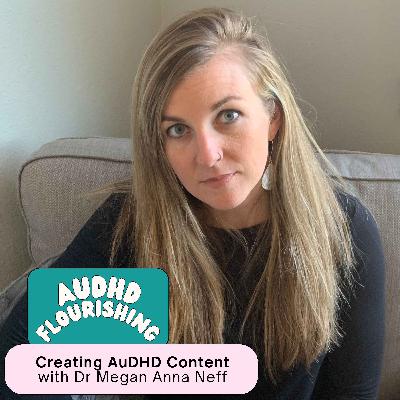
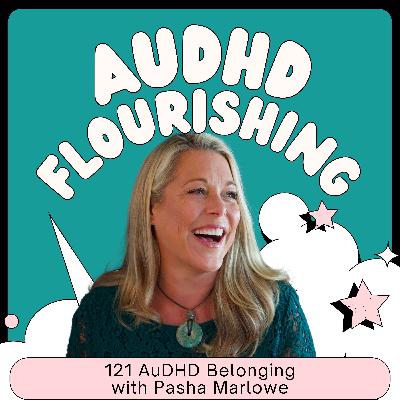
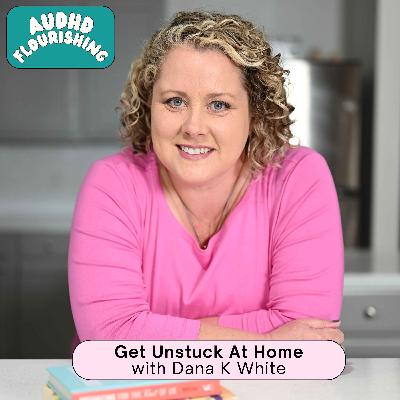

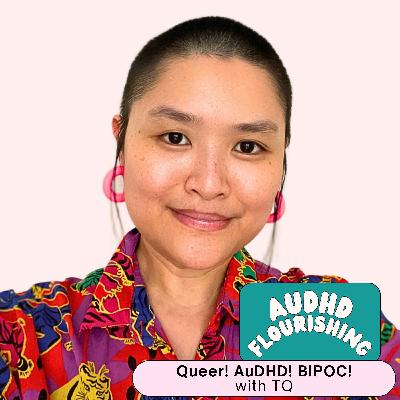
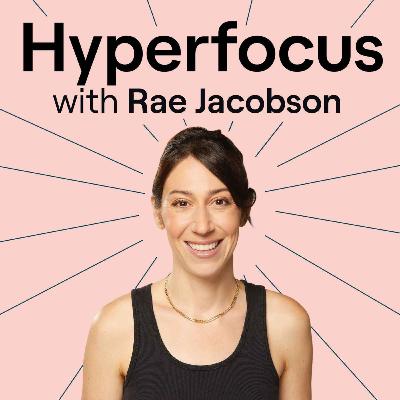
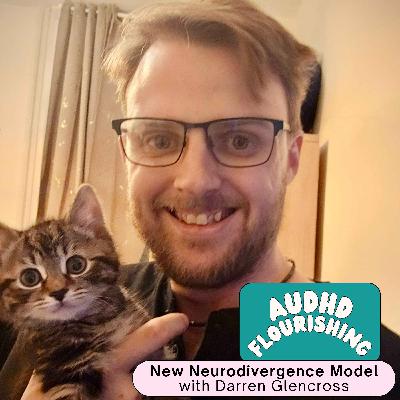
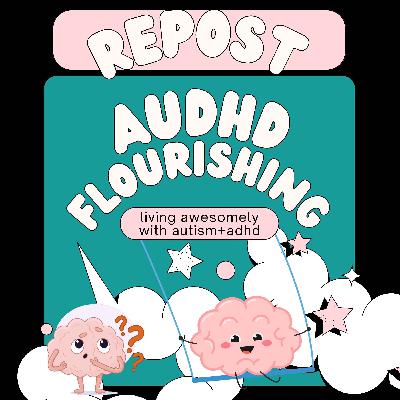



I want to take that class!